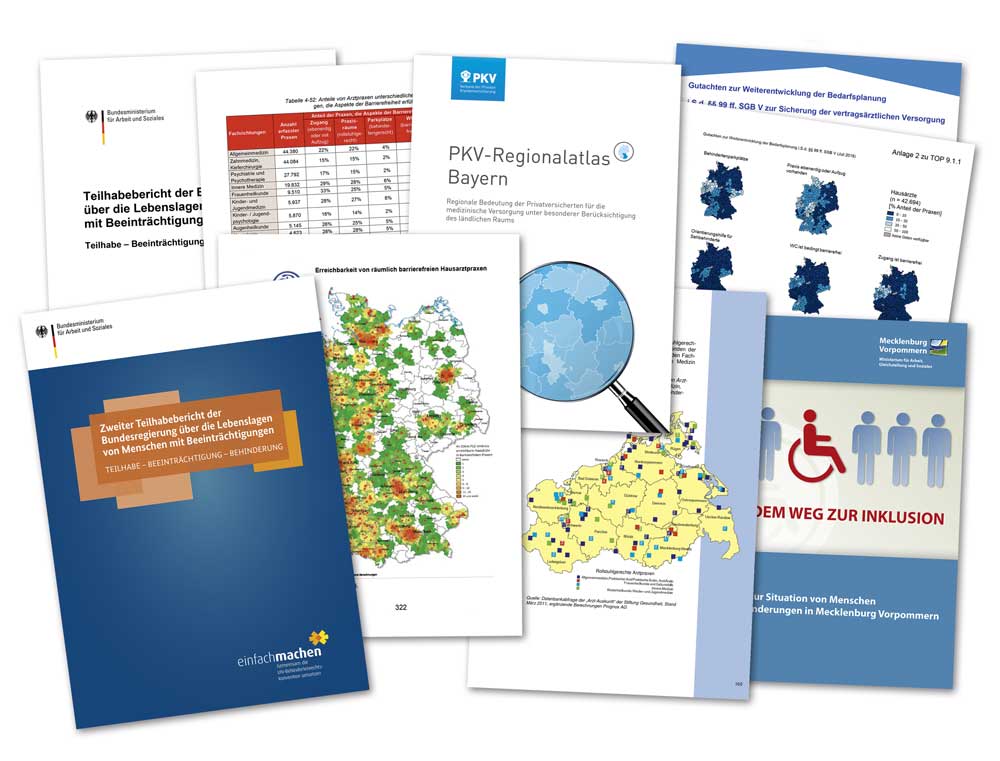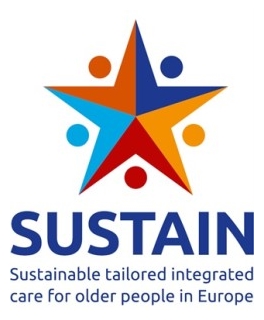Analyses for the Federal Joint Committee, the Federal Government and Universities
Many scientific papers draw on information from our Structured Directory of Medical Care. Only we offer the comprehensive directory of all physicians active in patient care in Germany with its immense wealth of detailed information. This ranges from specializations and equipment to geographic and sociographic data and the respective provisions for accessibility. Our directory therefore serves not only as a basis for services such as the Arzt-Auskunft (Doctor Search) and Arzt-Auskunft Professional (Doctor Search Professional), but also as a basis for research – both for public-legal and private-legal decision-makers.

Research from many angles
The wide range of selection criteria, background information and correlations between different aspects enables scientific research at the highest level. Whether as a table, as a chart, static or dynamic: the spectrum of scientific use ranges from topographical analyses of pain therapy care in Hesse to the accessibility of barrier-free practices in Stuttgart to profitability analyses of medical care center locations. We present some examples here.
Government participation reports and BMAS study: Inclusion in practices put to the test
Does inclusion succeed in everyday practice? The most recent participation reports of the German federal government and the study “On the Way to Inclusion” of the Federal Ministry of Labor and Social Affairs (BMAS) examined the current situation in outpatient medical care with regard to accessibility. Our Structured Directory served as the basis for the analyses in the area of health in each case. It provided detailed information on the existing provisions for accessibility in German medical practices.
Expert opinion for the requirements planning of the Federal Joint Committee (G-BA)
Federal Committee (G-BA), it prepared the expert opinion on the further development of demand planning to ensure medical care – also with a view to accessibility. The G-BA is the highest decision-making body of the joint self-government in the German healthcare system. Among other things, it is responsible for ensuring equal and needs-based access to primary care and specialist care.

PKV regional atlases use information from the structured database
What role do privately insured persons play in medical care in Germany, especially in rural and structurally weak regions? This is the question addressed by the PKV regional atlases. They present analyses of the significance of the additional revenues triggered by private patients for the medical infrastructure in the various regions. The analyses are based, among other things, on data from our Structured Directory.
Six regional atlases have been published so far for Bavaria (April 2019), Saarland (June 2019), Hesse (June 2019), North Rhine-Westphalia (January 2020), Baden-Württemberg (November 2020) and Rhineland-Palatinate (October 2020).
Factual basis for location analyses
Companies also use evaluations from the Structured Directory. For example, we analyzed the availability and accessibility of local outpatient care at specific locations for a real estate company and also projected them into the future. The results served as a basis for further developing the locations in terms of accessibility, ambient assisted living and self-determined living.
SUSTAIN project partners: Sustainable health research for Europe

Since April 2015, Stiftung Gesundheit has been a project partner of SUSTAIN through its funding association. In this EU project, eight EU countries addressed the topic of sustainable, tailored integrated care in a European comparison. The objectives included, for example, the development of a “toolbox”, a toolkit for innovations in the field of care for older people. The project was funded with money from the EU Commission’s “Horizon 2020” research and innovation program and was successfully completed in March 2019. As a SUSTAIN partner, our foundation supervised the German sub-project. In doing so, it contributed its many years of expertise in the field of collecting and recording information, which it possesses through the operation of the Structured Directory.

“We use the structured data to analyze the medical centers. With the analyses, we can quickly get a comprehensive view of the qualitative development status of a medical center.”
Carsten Baye, managing director of Baro Health Investments, healthcare real estate